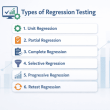Governments around the world are facing unprecedented challenges in the 21st century. From climate change to economic inequality, from healthcare to education, the issues that governments must address are complex and multifaceted. To meet these challenges, governments are turning to advanced analytics and machine learning to help them make better decisions, allocate resources more effectively, and improve the lives of their citizens.
In this article, we will explore how advanced analytics and machine learning can help governments build smarter, more efficient, and more effective systems. We will look at some of the key benefits of these technologies, as well as some of the challenges that governments must overcome to implement them successfully.
What is Advanced Analytics and Machine Learning?
Advanced analytics and machine learning are two related technologies that are transforming the way governments operate. Advanced analytics refers to the use of statistical and mathematical models to analyze data and extract insights. Machine learning, on the other hand, is a subset of artificial intelligence that involves training algorithms to learn from data and make predictions or decisions.
Together, these technologies can help governments make sense of vast amounts of data, identify patterns and trends, and make more informed decisions. They can also help governments automate routine tasks, reduce errors, and improve the accuracy and efficiency of their operations.
Benefits of Advanced Analytics and Machine Learning for Governments
There are many benefits to using advanced analytics and machine learning in government. Here are just a few:
1. Improved Decision Making: By analyzing data from a variety of sources, governments can gain a more comprehensive understanding of complex issues and make more informed decisions. For example, by analyzing data on traffic patterns, weather conditions, and accident rates, governments can optimize traffic flow and reduce congestion.
2. Resource Allocation: Governments can use advanced analytics and machine learning to allocate resources more effectively. For example, by analyzing data on crime rates, governments can identify areas that require additional police resources and allocate them accordingly.
3. Improved Service Delivery: By automating routine tasks and reducing errors, governments can improve the accuracy and efficiency of their operations. For example, by using machine learning to analyze medical records, governments can identify patients who are at risk of developing chronic conditions and provide them with preventative care.
4. Cost Savings: By automating routine tasks and reducing errors, governments can save money on labor costs and improve the efficiency of their operations. For example, by using machine learning to analyze energy usage data, governments can identify areas where energy consumption can be reduced and save money on utility bills.
Challenges of Implementing Advanced Analytics and Machine Learning in Government
While there are many benefits to using advanced analytics and machine learning in government, there are also some challenges that must be overcome. Here are a few:
1. Data Quality: To be effective, advanced analytics and machine learning require high-quality data. Governments must ensure that their data is accurate, complete, and up-to-date.
2. Privacy and Security: Governments must ensure that the data they collect is secure and that citizens’ privacy is protected. This is particularly important when dealing with sensitive data such as medical records or financial information.
3. Technical Expertise: Implementing advanced analytics and machine learning requires specialized technical expertise. Governments must ensure that they have the necessary skills and resources to implement these technologies effectively.
4. Resistance to Change: Implementing advanced analytics and machine learning may require changes to existing processes and systems. Governments must be prepared to overcome resistance to change and ensure that stakeholders are engaged and supportive.
Conclusion
Advanced analytics and machine learning are transforming the way governments operate. By analyzing data and extracting insights, governments can make more informed decisions, allocate resources more effectively, and improve the lives of their citizens. While there are challenges to implementing these technologies, the benefits are clear. As governments around the world face increasingly complex challenges, advanced analytics and machine learning will play an increasingly important role in building smarter, more efficient, and more effective systems.












